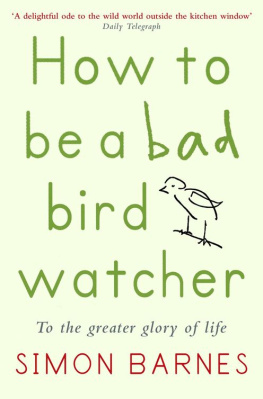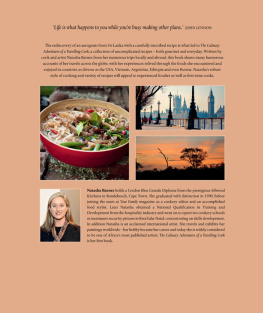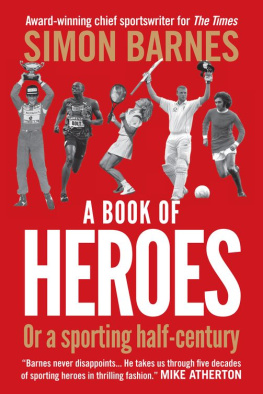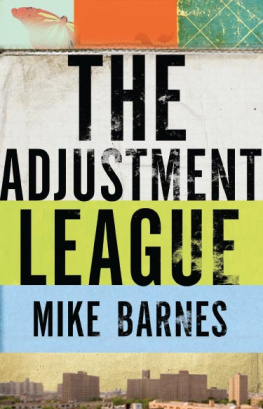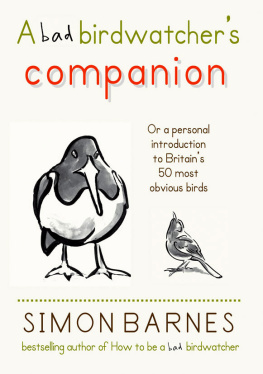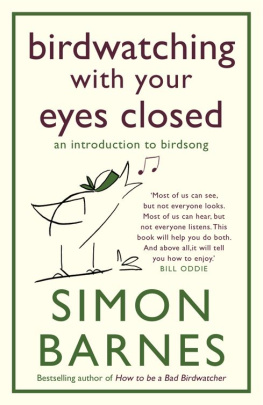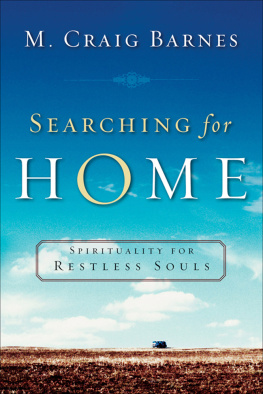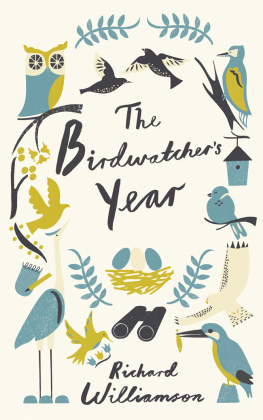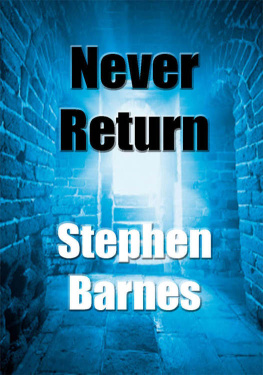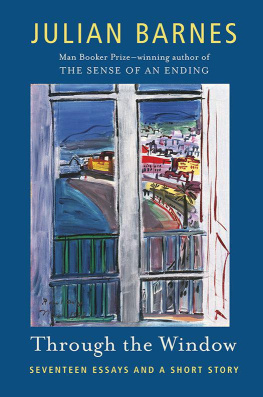Barnes - How to be a Bad Birdwatcher
Here you can read online Barnes - How to be a Bad Birdwatcher full text of the book (entire story) in english for free. Download pdf and epub, get meaning, cover and reviews about this ebook. year: 2011;2004, publisher: Short Books, genre: Religion. Description of the work, (preface) as well as reviews are available. Best literature library LitArk.com created for fans of good reading and offers a wide selection of genres:
Romance novel
Science fiction
Adventure
Detective
Science
History
Home and family
Prose
Art
Politics
Computer
Non-fiction
Religion
Business
Children
Humor
Choose a favorite category and find really read worthwhile books. Enjoy immersion in the world of imagination, feel the emotions of the characters or learn something new for yourself, make an fascinating discovery.
How to be a Bad Birdwatcher: summary, description and annotation
We offer to read an annotation, description, summary or preface (depends on what the author of the book "How to be a Bad Birdwatcher" wrote himself). If you haven't found the necessary information about the book — write in the comments, we will try to find it.
Look out of the window.
Barnes: author's other books
Who wrote How to be a Bad Birdwatcher? Find out the surname, the name of the author of the book and a list of all author's works by series.
How to be a Bad Birdwatcher — read online for free the complete book (whole text) full work
Below is the text of the book, divided by pages. System saving the place of the last page read, allows you to conveniently read the book "How to be a Bad Birdwatcher" online for free, without having to search again every time where you left off. Put a bookmark, and you can go to the page where you finished reading at any time.
Font size:
Interval:
Bookmark:
To my father the first bad birdwatcher
I ever met. He taught me all he knew.
I am but mad north-north-west; when the wind is southerly, I know a hawk from a handsaw.
Hamlet
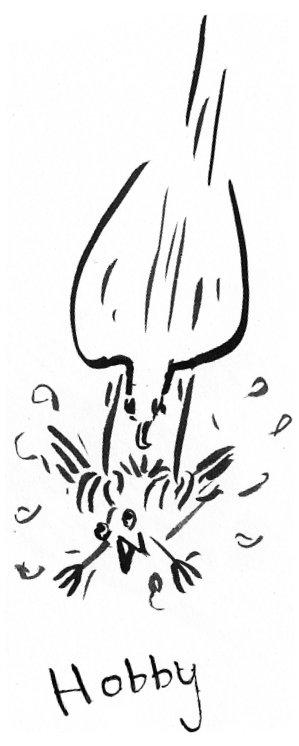
What makes the marvellous is its peculiar way of being ordinary; what makes the ordinary is its peculiar way of being marvellous.
Orhan Pamuk, The Black Book
I am a bad birdwatcher.
On the other hand, and taking one thing with another, when it comes to enjoying birds I am world-class.
Where shall I start? With the carmine bee-eaters of the Luangwa Valley in Zambia? With the rhinoceros hornbill glimpsed through a gap in the canopy in the rainforests of Borneo? Or with the crested oropendola seen from the press box at Queens Park cricket ground in Trinidad (when I was being paid to watch Ian Botham)?
No. Lets start in Barnet, on the extreme edge of London. I used to live there. I was going into the centre of London to meet someone, perhaps even to do some work. I wasnt looking for birds. I hadnt even got binoculars; you cant use them in a London pub, not without attracting adverse comment, anyway.
I wasnt looking for birds, but I am always looking at them, you see. Not for reasons of science, or in hope of a fabulous rarity, or to make careful observations of seasonal behaviour. Just because looking at birds is one of lifes greatest pleasures. Looking at birds is a key: it opens doors, and if you choose to go through them you find you enjoy life more and understand life better.
It was a nice day of early summer, the kind of day when a chaps eyes keep turning to the girls who have moulted into their skimpy summer plumage and men wear their jackets on their thumbs. And because it was such a nice day, I thought Id walk past the common to Hadley Wood train station rather than through the High Street to High Barnet tube. It turned out to be one of my better decisions.
I was going through Monken Hadley churchyard to catch a train that would get me to Oxford Circus (change at Highbury & Islington) in 40 minutes. And there were lots (note scientific precision) of house martins whizzing round and round the church tower.
Perhaps you know all about house martins. Or perhaps you think they are swallows. No matter. They are jaunty and swallow-like and, if you are lucky, they nest under the eaves of your house and leave aromatic trails down the wall and bring joy to your heart on the rare day in spring when they return from their travels.
They are dapper little chaps, navy blue with white bums, and they are one of the sights and sounds of the English summer: doing things like whizzing round church steeples and catching flies in their beaks. Later in the season the young ones take up whizzing themselves, trying to get the hang of this flying business. I always imagine the martin mother saying: Well done, little one. You flew three times round the church tower. Now youve got another flight to try. Cape Town.
Where was I? Monken Hadley church, pausing on my journey to Oxford Street to spend a few moments gazing at the whirligig of martins. It was nothing special, nothing exceptional, and it was very good indeed. Note this: one of the great pleasures of birdwatching is the quiet enjoyment of the absolutely ordinary.
And then it happened. Bam!
Gone.
From the tail of my eye, I saw what I took to be a kestrel. I turned my head to watch it as it climbed, and I waited for it to go into its hover, according to time-honoured kestrel custom. But it did nothing of the kind. It turned itself into an anchor, or the Greek letter psi. Or a thunderbolt.
No kestrel this: it crashed into the crowd of martins like the wrath of God, and almost as swiftly vanished. I think it got one, but I cant swear to it, it was all so fast. And there I was down on the pavement with a bag full of books on my back, uttering incredulous obscenities and prayerful blasphemies. What the hell was that?
It was a hobby. Perhaps the most dashing falcon of them all: slim, elegant and deadly fast. Not rare as rare-bird -addicts reckon things: they come to Britain in reasonable numbers every summer to breed. The sight of a hobby makes no headlines in the birdwatching world. It was just a wonderful and wholly unexpected sight of a wonderful and wholly unexpected bird. It was a moment of perfect drama. Note this: one of the great pleasures of birdwatching is the moments of peak experience.
We humans tend to simultaneous and mutually exclusive desires: to be married, to be single; to be social, to be alone; to travel adventurously, to stay at home. Birdwatching embraces both halves of our natural desire for contradiction. It brings us enhanced enjoyment of the ordinary, the easy and the safe, and it brings us moments of high drama and gratification and dangerous delight.
Rather like life, really. And that is what bad birdwatching is all about. Life, that is to say.
***
Lets go back to that hobby, and those martins. How much skill was required? How much knowledge? How much scientific background? None, none, and none. The martins were just there, being obvious and making their merry farting calls to each other: one of the great ambient birds of the English summer. Everyone has seen martins, and is aware of them at some level, even if he cant put a name to them and is unaware of the diagnostic white bums.
And the hobby was unmissable, unmistakable: a great black (I saw him only in silhouette) force. It wasnt necessary to identify the bird, to know it by name; it was enough to witness a fierce and terrible drama. Any bad birdwatcher would have known it was a bird of prey, and any human being would have known it was something dreadful. Knowing its name was a luxury. It wasnt exciting because it was rare and because I could call it Falco subbuteo and because I could tick it and boast about it. It was exciting because it was a thrilling bird in a thrilling moment.
Now, I am lying here just a bit. Knowing that the bird was a hobby was a formal completion of the business. It was an explanation, a key to the drama. That is what hobbies do, you see: they turn into anchors or psis and make sudden lacerating dives into flocks of circling martins. It was gratifying to have the explanation: the understanding.
But before the understanding comes the wonder. Comes the delight. And that is the first aim of being a bad birdwatcher : the calm delight of the utterly normal, and the rare and sudden delight of the utterly unexpected.
The only real skill involved in this perfect birdwatching moment was the willingness to look. It was not skill that gave me the sight; it was habit. I have developed the habit of looking: when I see a bird I always look, wherever I am. It is no longer a conscious decision. I might be in the middle of a conversation of amazing importance about the Direction Of Our Marriage, but my eye will flick out of the window at a hint of movement, caught in the tail of my eye, and I will register: bloody hell, sparrowhawk. I might say it aloud, too not necessarily a wise decision.
I once found a questionnaire in a birdwatching magazine . It asked: How often do you go birdwatching? I reject the question out of hand. I dont go birdwatching. I am birdwatching. Birdwatching is a state of being, not an activity. It doesnt depend on place, on equipment, on specific purpose, like, say, fishing. It is not a matter of organic trainspotting; it is about life and it is about living.
It is a matter of keeping the eyes and ears and mind open. It is not a matter of obsession, not at all. It is just quiet enjoyment. A happy married man will still glance at pretty girls and appreciate their loveliness without the need to do anything about it. It is just a habit of heterosexual males to look, and it is one that adds to the gaiety of life.
Font size:
Interval:
Bookmark:
Similar books «How to be a Bad Birdwatcher»
Look at similar books to How to be a Bad Birdwatcher. We have selected literature similar in name and meaning in the hope of providing readers with more options to find new, interesting, not yet read works.
Discussion, reviews of the book How to be a Bad Birdwatcher and just readers' own opinions. Leave your comments, write what you think about the work, its meaning or the main characters. Specify what exactly you liked and what you didn't like, and why you think so.

